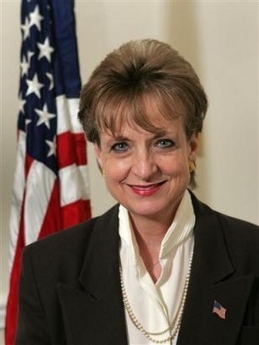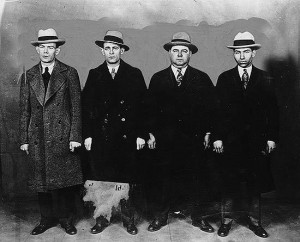The late William F. Buckley, Jr., once famously observed that he would rather be governed by the first 2,000 names in the Boston phone book than by the entire faculty of Harvard. Buckley was prescient and correct about many things, but in this case his wish turned out to be spectacularly wrong: with President Obama’s choice of Elena Kagan for the Supreme Court, Buckley’s nightmare has come true, and the Harvard faculty now really is running the country.

Starting with Obama himself, whose transition team alone included 20 Crimson classmates, there are more than 70 graduates of Harvard Law in the administration. Sure, Harvard has a lousy football team, and its record of reflexive anti-Americanism is second to none, but no mafia racket ever organized more effectively, or with such a baleful influence on the hapless country south and west of the Charles River. Were it a conventional criminal organization,it would be under investigation by both Congress and the media for its “disproportionate” and deleterious effect on American society.
Even liberals are starting to notice. As my good friend Walter Shapiro wrote recently on Politics Daily:
If Elena Kagan (Harvard Law ’86) is confirmed for the Court, all nine justices would have received their legal training at Harvard or Yale.
This is one of those moments when you sense that American democracy is more of a rigged game than they taught you back in high school civics classes. Few object to a meritocracy in which people, regardless of family backgrounds, are judged by what they have accomplished in life. But should that binding decision have been made by the admissions committees at two law schools when the applicants were still in their early 20s? Imagine a guidance counselor shouting, “Future Supreme Court justices over here. Everyone else, best of luck with your legal careers – if you don’t aim too high.”

There follows a fun statistical analysis, only partly tongue-in-cheek, demonstrating that, given a few basic criteria, in which SCOTUS candidates must be drawn from either Harvard or Yale and be older than Obama, there were only ever two possible candidates for Justice Stevens’ seat:
Drum roll, please, maestro. We have gone from 10,000 potential Supreme Court justices to exactly two – Kagan and Federal Appeals Court Judge Merrick Garland (Harvard Law ’77). Kagan won the presidential coin toss, so Garland will be kept in reserve if another vacancy opens up. Because the enduring motto of the Supreme Court remains – equal justice under law from Harvard and Yale.
Over at the Los Angeles Times, law professor Jonathan Turley, who teaches at George Washington University, makes a simliar point:
The decision of President Obama to select a nominee from one of these two schools is particularly disappointing as a replacement for Justice John Paul Stevens — an iconic figure on the court who was also its only graduate from an alternative institution (Northwestern)…
Why should we care? When you virtually exclude all but two of the nation’s 160 law schools as sources for justices, it not only reduces the number of outstanding candidates but guarantees a certain insularity in training and influences on the court. This bias is not only elitist but decidedly anti-intellectual. Moreover, there is no objective basis for favoring these two schools… while Harvard and Yale are routinely ranked in the top spots, the faculties and student bodies are not viewed as manifestly superior to such competitors as Stanford, Chicago, Michigan or other top schools.
Racket — did somebody say “racket?”

If Obama had looked more broadly at outstanding graduates from other schools, he might have found someone with more professional experience, a more extensive writing record or some actual experience in the judiciary. What Kagan had was a Harvard connection and one of the most powerful legal cartels behind her. When challenged on this obvious bias in favor of two schools, leaders usually insist that it is just coincidence. Ironically, the federal government has long rejected the claims of businesses that insist their failure to hire from certain groups, such as women or minorities, is unintentional.
Nominations like Kagan’s are the result of a network of graduates who work consciously or unconsciously to see that their own are nominated… Indeed, reporters breathlessly reported how Kagan and Scalia are good friends and how she knows many of the main players from Harvard, as if it is the judicial equivalent to having graduated from the Hogwarts School of Witchcraft and Wizardry.

The favoritism shown Harvard and Yale should be viewed not just as incestuous but as scandalous.
Nice to see the media finally noticing.
COMMENTS
Please let us know if you're having issues with commenting.